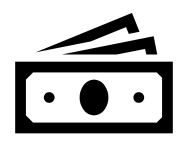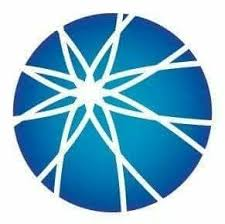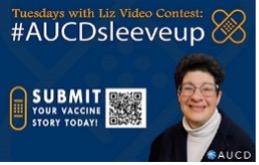 President's Fiscal Year 2022 Budget President's Fiscal Year 2022 Budget
Friday May 28th brought the release of the President's Fiscal Year 2022 (October 1, 2021-September 31,2022) budget. As is always the case, Presidents' budgets are unlikely to translate to final budget reality. However, the budget reflects many of the policy priorities the Administration will try to pursue this year through Congress, proposed regulations, and the courts.
High-level summary:
- The proposed budget is $6 trillion in the 2022 fiscal year.
- Budget contains no new major spending proposals.
- Does include some funds for the proposed, but not yet passed, American Jobs Plan and American Families Plan.
Plain language:
- The President has shared his ideas for the federal government's budget in 2022.
What it means to you:
- Many AUCD porgrams get their funding from the federal appropriations process.
- Appropriations is the act of setting aside money for a specific program from the federal budget.
 AUCD's priorities in proposed budget: AUCD's priorities in proposed budget:
AUCD advocates for and educates around the following budget lines that support the work of our network. With the release of the budget you have an opportunity to reach out to your congressional delegation and let them know what programs are important to you and how funding supports people in your state.
University Centers for Excellence in Developmental Disabilities (UCEDDs):
|
Program
|
FY 20 Enacted
|
FY 21 Enacted
|
FY 22 AUCD's Request
|
FY 22 President's Budget Proposal
|
|
UCEDDs
|
$41.619 million
|
$42.119 million
|
$45 million
|
$47 million
|
AUCD's request to share with your Members of Congress:
Leadership Education in Neurodevelopmental and Related Disabilities Programs (LENDs):
|
Program
|
FY 20 Enacted
|
FY 21 Enacted
|
FY 22 AUCD's Request
|
FY 22 President's Budget Proposal
|
|
Autism and Other DDs
|
$52.344 million
|
$53.844 million
|
$56.5 million
|
$57 million
|
| LENDs |
$35.245 million |
$36.245 |
$38 million |
Included within the $57 million |
AUCD's request to share with your Members of Congress:
Projects of National Significance (PNS):
|
Program
|
FY 20 Enacted
|
FY 21 Enacted
|
FY 22 AUCD's Request
|
FY 22 President's Budget Proposal
|
|
PNS
|
$12.25 million
|
$12.25 million
|
$14 million
|
$13 million
|
AUCD's request to share with your Members of Congress:
Model Transition Programs for Students with Intellectual Disabilities (TPSIDs):
|
Program
|
FY 20 Enacted
|
FY 21 Enacted
|
FY 22 AUCD's Request
|
FY 22 President's Budget Proposal
|
|
TPSIDs
|
$11.8 million
|
$13.8 million
|
$14 million
|
$15.18 million
|
AUCD's request to share with your Members of Congress:
Eunice K. Shriver National Institute of Child Health and Human Development (NICHD):
|
Program
|
FY 20 Enacted
|
FY 21 Enacted
|
FY 22 AUCD's Request
|
FY 22 President's Budget Proposal
|
|
NICHD
|
$1.59 billion
|
$1.59 billion
|
$1.708 billion
|
$1.942 billion
|
AUCD's request to share with your Members of Congress:
National Center for Birth Defects, Developmental Disabilities, Disabilities, and Health (NCBDDD):
|
Program
|
FY 20 Enacted
|
FY 21 Enacted
|
FY 22 AUCD's Request
|
FY 22 President's Budget Proposal
|
|
NCBDDD
|
$160 million
|
$167 million
|
$180 million
|
$173 million
|
AUCD's request to share with your Members of Congress:
Other areas of interest:
The lives of people with disabilities and their families are touched by every part of the federal budget. The following lines reflect areas of key investments:
- U.S. Department of Health and Human Services (HHS): $131.8 billion in discretionary budget authority and $1.5 trillion in mandatory funding.
- Administration for Community Living (ACL): $3.1 billion, an increase of $768 million above FY 2021.
- Intellectual and Developmental Disabilities Programs: $195 million
- State Councils on Developmental Disabilities: $89 million
- Developmental Disabilities Protection and Advocacy: $47 million
- University Centers for Excellence in Developmental Disabilities: $47 million
- Projects of National Significance: $13 million
- National Institute on Disability, Independent Living, and Rehabilitation Research: $119 million
- Independent Living: $148 million, an increase of $32 million
- Family Caregiver Support Services, $280 million
- Voting Access for People with Disabilities (HAVA): $10 million
- Assistive Technology: $44 million
- Centers for Medicare and Medicaid Services (CMS): $1.4 trillion in mandatory and discretionary outlays for CMS, a net increase of $96 billion above FY 2021
- Money Follows the Person (MFP) demonstration: $423 million
- Health Resources and Services Administration (HRSA): $12.6 billion for HRSA, which is $497 million above FY 2021
- Maternal and Child Health Block grants: $823 million
- Family-to-Family Health Information Centers: level-funded at $6 million
- Ryan White HIV/AIDS Program: $2.6 billion
- National Institutes of Health (NIH): $52 billion, an increase of $9 billion above FY 2021
- The Centers for Disease Control and Prevention (CDC): $8.7 billion, an increase of$1.6 billion above FY 2021
- Deparment of Education: Budget includes $102.8 billion in new discretionary budget authority, an increase of $29.8 billion, or 41%, increase above Fiscal Year 2021
- Title 1: $20 billion in new funding
- Individuals with Disabilities in Education Act: $16 billion, a $2.7 billion increase above FY 2021
- IDEA Part C, Early Intervention services for infants and toddlers with disabilities and delays: $732 million, a $250 million increase above FY 2021
- $1 billion, in addition to the resources in the American Rescue Plan, to increase the number of counselors, nurses, and mental health professionals in schools
- Increase the maximum Pell Grant by $400, representing a significant first step to deliver on the President's goal to double the grant
- $100 billion t omodernize public schools, inclduing community college facilities
- Department of Labor: $14.2 billion
- Office of Disability Employment Policy (ODEP): $42.7 million
Action steps:
Biden-Harris Administration
On May 25th, the U.S. Department of Health and Human Services (HHS) announced additional Biden Administration appointments. Appointment of particular note to the disability community include:
- Dr. Anjali J. Forber-Pratt, as the Director of the National Institute on Disability, Independent Living and Rehabilitation Research (NIDILRR).
- Dr. Forber-Pratt began her research career in 2006, and her primary area of expertise is disability identity development. You can learn more about work and past connections to AUCD network here.
- Molly Doris-Pierce, as Special Assistant Office of Intergovernmental and External Affairs.
- Molly Doris-Pierce, previously served as the Biden Campaign's National Disability Engagement Director.
Plain language:
- President Biden continues to appoint people who will serve our country during his Administration.
What it means to you:
- The transition creates new leaders in federal agencies. The work of these agencies will create changes in federal policy that impacts the lives of people with disabilities and their families.
Action steps:
- Continue to follow news from the Biden Administration at whitehouse.gov.
-
 Keeping All Students Safe Act Keeping All Students Safe Act
Chairman Robert C. "Bobby" Scott (D-Va.), House Committee on Education and Labor, Representative Don Beyer (D-Va.), Representative Donald McEachin (D-Va.), Chair Patty Murray (D-Wash.) and Senator Chris Murphy (D-Conn.), Senate Committee on Health, Education, Labor, and Pensions (HELP), reintroduced the Keeping All Students Safe Act,( S.1858, H.R.3474), legislation to protect students from dangerous seclusion and restraint discipline practices in school. The legislation would ban the use of seclusion and dangerous restraint practices (e.g., physical restraints that affect breathing, chemical restraints) in any school receiving federal taxpayer money. Additionally, KASSA would provide schools with training on evidence-based positive behavior supports and require states to monitor the law's implementation.
Plain language:
- Congress is working on a bill that would protect students from being punished in a a way that can hurt them.
What this means to you:
- Most students that are punished in a harmful way are students with disabilities. AUCD supports this bill because it would help protect students with disabilities.
Action steps:
 Recovery Proposals Recovery Proposals
Negotiations continue on what to include in recovery and infrastructure legislation. Priorities in the disability community that are being considered as part of the legislative packages include:
- Ending subminimum wages and modernizing disability employment supports to allow for competitive, integrated employment;
- Continued expansion of access to Home and Community-Based Services (HCBS) for people with disabilities, ending waiting lists for services and ensuring a stable, valued direct support workforce;
- Meeting the needs of children, including children with disabilities in childcare and education from birth through college; and
- Ensuring all modernization of physical and virtual infrastructures are accessible.
Plain language:
- Congress is working on a big bill that could help people with disabilities. You may be hearing about it as a plan for improving our country's infrastructure.
- Infrastructure means the buildings, roads, bridges, power lines, and other things our country needs to work every day. It can also include systems that make our country work, like schools, healthcare, and other government services.
What it means to you:
- Disability issues are a large part of the American Jobs Plan, creating a need for all members of Congress to hear from you about Home and Community-Based Services and Competitive Integrated Employment. It is very important that all members of Congress are hearing from their constituents about how these investments will impact people and systems in your community.
Action steps:
- Learn more about proposals:
- Read and consider signing onto the joint letter from Aging, Disability, and Workforce groups.
- Email or call the Capitol Switchboard at (202) 224-3121 (voice) or (202) 224-3091(tty) and ask to be connected to your Senators and Representatives.
- You can use Congress.gov to find your Members of Congress.
- Leave a brief message sharing that Home and Community-Based Services (HCBS) and Competitive Integrated Employment are important to you. Ask to be updated on how the Member will support these issues.
 Access to COVID-19 Vaccines for People with Disabilities Access to COVID-19 Vaccines for People with Disabilities
Work at the federal, state, and local levels continues to reach the goal of everyone 12 years-old and over having access to vaccine and 70% of people being vaccinated by July 4th.
Plain language:
- Work is happening to make sure people with disabilities can get COVID-19 vaccines. If you have been vaccinated, there are now less restrictions.
What it means to you:
- Work is happening to make sure everyone can get their COVID-19 vaccine and feels safe doing so.
Action steps:
- AUCD COVID-19 Vaccine Confidence Initative: 23 AUCD network centers are engaged in a national effort t ovaccinate all eligible individuals with disabilities by the anniversary of the Americans with Disabilities Act at the end of July. Learn more about the AUCD network centers involved and find resources on the National Center for Disability in Public Health site.
- Consider joining the Administration-led Vaccine Month of Action by committing to host a person-to-person outreach event for persons in the disability community!
- Sign-up your UCEDD, LEND, or IDDRC to be a partner organization.
- Spreach the word about vaccine events you are hosting.
- Find other events happening in your area for opportunities to collaborate on accessibility.
- Use #VaccinateByADA and #AUCDSleeveUp in social media posts about your vaccine outreach events.
- New CDC vaccine documents providing updated guidance and toolkits for vaccination of those ages 12-18 years-old:
-
- There are now three easy options from the U.S. Department of Health and Human Services to find a COVID-19 vaccine:
- Visit vaccines.gov (English) or vacunas.gov (Spanish) to search and find a vaccine near you.
- Text GETVAX (438829) for English or VACUNA (822862) for Spanish to receive three vaccine sites on your phone within seconds.
- Call the National COVID-19 Vaccination Assistance Hotline at 1-800-232-0233 for those who prefer to get information via phone call. The call center can assist in 150+ langauges and features a TTY line (1-888-720-7489).
 Policy Talk Policy Talk
Have a personal or professional connection to disability policy? Submit a post to AUCD Policy Talk! Check out submission guidelines.
 #AUCDsleeveup Tuesdays with Liz Contest! #AUCDsleeveup Tuesdays with Liz Contest!
We are excited to announce the new #AUCDsleeveup Tuesdays with Liz Contest! We are looking for short videos from persons with disabilities, their family members, and other friends of the disability community sharing why you got the COVID-19 vaccine! Videos will be posted to AUCD social media and available for you and others to share with your own social media. The top three videos with the most likes, comments, and shares on social media will *win* AUCD gear and the person with the top video will also win an interview on a Tuesdays with Liz episode!
Submit your #AUCDsleeveup vaccine story today!
#AUCDsleeveup TWL Contest Rules:
- Videos must be less than one minute long.
- Videos should show the face(s) of the person(s) speaking.
- Say your name, how you are a part of the disability community (person with a disability family members, support professional, friend), and why you got the COVID-19 vaccine. For example, "Hi, my name is Liz and I am a person with a disability. I got my COVID-19 vaccine because I want everyone to be healthy and to see our families and friends again."
- We ask that you communicate as clearly as possible so that we can add captions.
|
